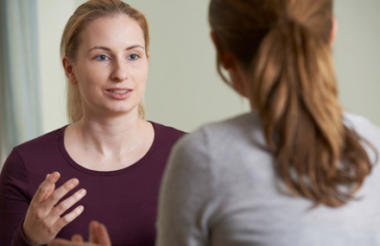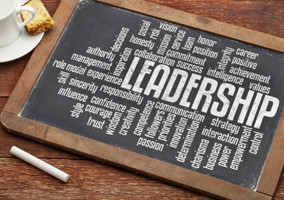As lockdown restrictions begin to lift and life opens up once more, we will all have a different story to tell of life in the time of coronavirus. For some, it will be a tale of triumph in the face of adversity, of a country coming together in kindness.
But for others, the story will be very different. It will be one of isolation, inequality and deprivation. Months without a single phone-call, and on-going anxiety about where the next meal is coming from. These are the people we must focus on as we consider life beyond lockdown.
With Friday marking the birthday of the founder of the Red Cross, Henri Dunant, we have never been more needed. The British Red Cross has been supporting people in crisis for 150 years - both in the UK and overseas - as part of the world’s largest humanitarian network. We believe in the absolute importance of taking a person-centred approach when crisis strikes, viewing everyone affected as an individual with their own unique set of practical and emotional needs – and Covid-19 is no different.
New set of challenges
But recovering from the pandemic will bring a whole new set of challenges to the British Red Cross and our sector. How do we scale up support to vulnerable people who have been left worse off by this crisis, while grappling with less resource and changing safety parameters? There is no ‘best practice’ guidance to replicate – put simply, we have not done this in living memory. However, what we do know from our long experience in emergency response is in any recovery, disadvantaged or marginalised communities will need extra support to get back on their feet.
Many people have spoken of Covid-19 as a leveller. But, for people who have been relying on foodbanks to eat, families of four living in one bed flats, or people self-isolating with an abusive partner, the impact of this virus will have felt anything but fair. And from our own conversations with vulnerable people, we know loneliness is a common denominator among people struggling to get by.
At the British Red Cross - along with partners from the Voluntary and Community Sector Emergencies Partnership - we are analysing data on economic insecurity, digital exclusion, loneliness and geographical isolation to map populations and vulnerabilities which might currently be going under the radar of the authorities. This data is already being used by some local councils and the charity sector, to guide efforts to ensure people continue to receive the tailored support they need.
Our teams are helping people living with challenges ranging from poor health, poverty and mobility issues to homelessness and insecure immigration status; all of whom are also experiencing loneliness on some level. Some have no access to the internet, digital devices or other human contact; while others are terrified of the prospect of long-term confinement, when even a corner shop is beyond physical or financial reach. We also know from our own research that loneliness and social isolation can disproportionately affect people from black, Asian and minority ethnic backgrounds; and now stark analysis from the Office for National Statistics shows that the virus is taking more lives from those communities too.
Long-term changes needed
So, what needs to happen as we transition to a ‘new normal’? Many of us are looking forward to seeing family and friends in person and being surrounded by our loved ones. But for too many others there is a risk nothing will change - they will remain just as vulnerable and alone as they were before this crisis began.
There have been some signs of a commitment to supporting more people struggling with loneliness during this crisis. Last month the government announced £5m to help tackle the issue – however, funding and support is needed year-round, not just in times of national emergency.
So, whilst we clap for our carers and are astonished by the millions of small acts of kindness that we see from the public every day, the focus now needs to turn to not only recovery but long-term change. Life beyond lockdown must mean reducing inequalities that exacerbate loneliness, and which have only been made worse by Covid-19. How can we build a future with strengthened and better-connected communities, where people who are on a low income, disabled, or from an ethnic minority, are not worse-off? The responsibility for creating a kinder, more equal society as we emerge from this crisis must lie with us all.
Zoë Abrams is executive director of communications and advocacy at the British Red Cross
Related articles
Elizabeth Balgobin: Covid-19 will make or break us, as leaders and as a society
Elizabeth Balgobin looks at how political and charity leaders compare when it comes to their early response to the coronavirus crisis.
Alex Blake: Fundraising during the Covid-19 pandemic
As the pandemic continues, Alex Blake looks at how fundraisers can secure funding and what actions they can take to be proactive during this time












